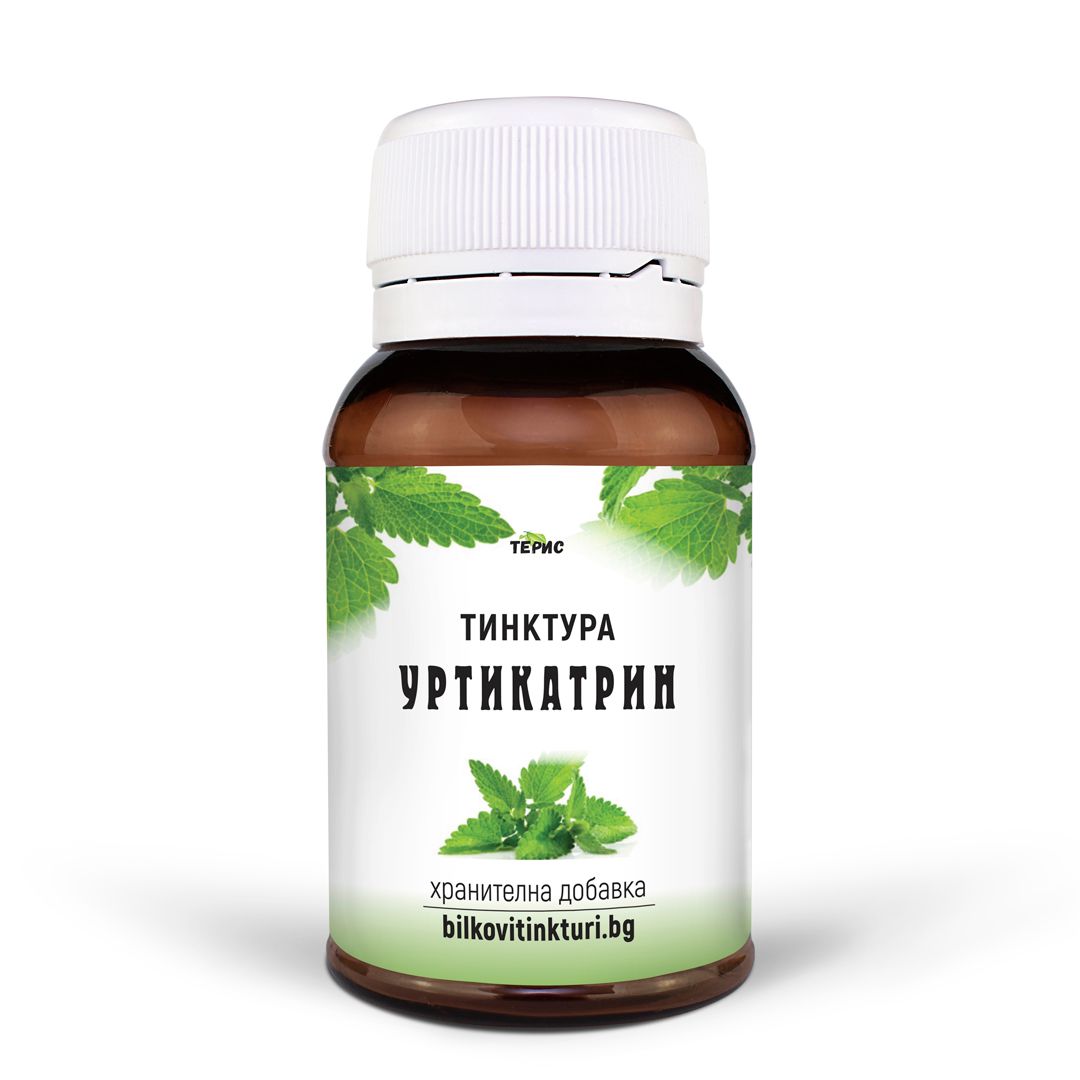Urtikatrin

Delivery
Guaranteed delivery within 48 hours

Certificate
Quality and safety

Service
Professional support

No GMO
Natural ingredients
Beneficial for skin, bones and joints, liver and pancreas
The herbal tincture URTICATRIN contains one of the oldest known medicinal plants. Nettle is known for its healing applications in:
- arthritis
- skin and liver diseases
- bone system problems
- anemia
Nettle has general strengthening, hemostatic, diuretic, anti-arthritis and anti-rheumatic, antiallergic effects. It reduces blood sugar levels, nettle leaves stimulate milk production, and the roots prevent prostate enlargement. Dry nettle leaves contain up to 200 mg% vitamin C, vitamin K, carotene, 2-5% chlorophyll, pantothenic acid; the roots are rich in tannins.
Herbal tincture URTIKATRIN 50ml is taken orally, 20 drops (5 ml) dissolved in a glass of water - 3 times a day.
It is recommended to take 10-15 minutes before meals.
The product is a food supplement, not a medicine, and does not replace a complete /balanced/ diet.
The product should not be used as a substitute for a varied diet.
Do not exceed the recommended daily dose.
Not to be used by pregnant and nursing women.
The product is not intended for persons under 18 years of age.
Contraindications: contraindicated for pregnant women in the last months of pregnancy.
Storage conditions: Store in a dry place protected from direct sunlight at a temperature of 5-25° C. Keep out of reach of young children.
Herbal tinctures are produced with a specially selected combination of herbs with entirely natural composition - they contain no chemical additives such as stabilizers, flavorings, or colorants.
Water-ethanol extract; 1 ml of tincture contains equivalent of:
- 22 mg nettle leaves
- ethanol 45% vol. 0.4 ml
- 0.6 ml deionized water
Dr. Mitko Rigov
Nettle is a plant that is very beneficial for the human body. Used since ancient times, it has proven therapeutic and preventive properties: supports immunity and immune reactivity; used for prevention and treatment of anemic syndrome; used for prevention and treatment of anemic syndrome; improves metabolic status - specifically carbohydrate and protein metabolism; benefits the function of the liver, gallbladder and bile ducts; positively affects the excretory, digestive and pulmonary systems; helps manage allergic conditions; applied for faster wound healing and stopping bleeding; has a role in fighting hair loss and certain cosmetic problems. Nettle is a natural concentrate of valuable amino acids, important vitamins (A, C, K, E, B) and trace elements - especially iron, copper, calcium, magnesium and silicon. It contains phytoncides - natural antibiotics, antioxidants - flavonoids, green pigments, glucosides and others.
FAQ
Herbal tincture URTIKATRIN is not recommended to be taken with alcohol, due to direct counteraction of some beneficial effects. There are also some indirect mechanisms, such as reduction of beneficial zinc under the influence of alcohol detoxification processes in the liver.
Arthritis is a medical condition of the musculoskeletal system that affects the joints. The term itself is composed of words meaning "joint" and "inflammation". It encompasses over 100 joint diseases. Arthritis is one of the main causes of disability after age 55, but it can develop and affect much younger people. The most common type of arthritis is osteoarthritis, which is considered characteristic of old age.
Some of the most commonly observed forms of arthritis are arthrosis, rheumatoid, infectious, and juvenile rheumatoid arthritis. Each of them affects different joints or develops in a different way, which is why their symptoms partially don't overlap.
It is believed that genetic, environmental and hormonal factors play a role in its occurrence. Rheumatoid arthritis is not necessarily passed down from generation to generation. People with specific genetic markers have a higher risk of developing rheumatoid arthritis, but the genes that predispose to rheumatoid arthritis don't always lead to the development of the disease. Many scientists believe that certain environmental factors trigger the development of rheumatoid arthritis in susceptible organisms. It is thought that the factors that cause the immune system to attack healthy joint fluid are bacteria and/or viruses.
The symptoms of rheumatoid arthritis come and go, and their intensity varies for each patient. The main symptoms are: joint stiffness; joint pain and swelling; redness and warmth in the affected area; reduced mobility; appearance of nodules or lumps under the skin; joint deformation.
